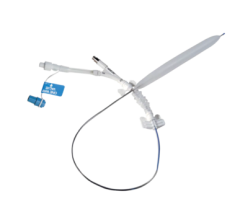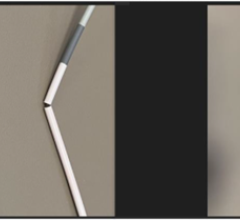
September 20, 2011 — Boston Scientific Corp. has launched its Coyote Balloon Catheter, a highly deliverable and ultra-low profile 0.014-inch balloon dilatation catheter designed to treat patients undergoing peripheral angioplasty procedures below the knee. The company has begun marketing the product in the United States, Europe and other international markets.
Boston Scientific developed the Coyote to help physicians better treat patients with challenging obstructive lesions in the lower extremities. It features an ultra-low lesion entry profile (0.017 inch), crossing profile and a shaft optimized for high deliverability. The balloon offers rapid deflation times and is available in lengths up to 220 mm on both over-the-wire (OTW) and Monorail platforms.
"The Coyote Balloon Catheter's low profile and ability to navigate through challenging vasculature make it ideal for treating vessels in the lower extremities," said J. A. Mustapha, M.D., director of endovascular intervention at Metro Health Hospital in Wyoming, Mich. "Its performance gives me greater confidence in being able to effectively treat patients with difficult anatomy who suffer from peripheral artery disease."
Coyote is the latest in a series of balloon catheter products introduced by Boston Scientific. In June, the company launched the Mustang PTA, a highly deliverable 0.035-inch percutaneous transluminal angioplasty (PTA) catheter designed for a wide range of peripheral angioplasty procedures.
An estimated 8 to 10 million patients in the United States alone suffer from peripheral artery disease (PAD), which is characterized by blockages in vessels of the peripheral vasculature and associated with high rates of morbidity. Balloon catheters are used in peripheral angioplasty and stenting procedures to open blocked arteries.
For more information: www.bostonscientific.com


 June 13, 2024
June 13, 2024 









